My next steps as an ambassador
I became an Evidence Ambassador in May and have attended training on communications and public speaking. At the training I met the other ambassadors who are an interesting and diverse [...]
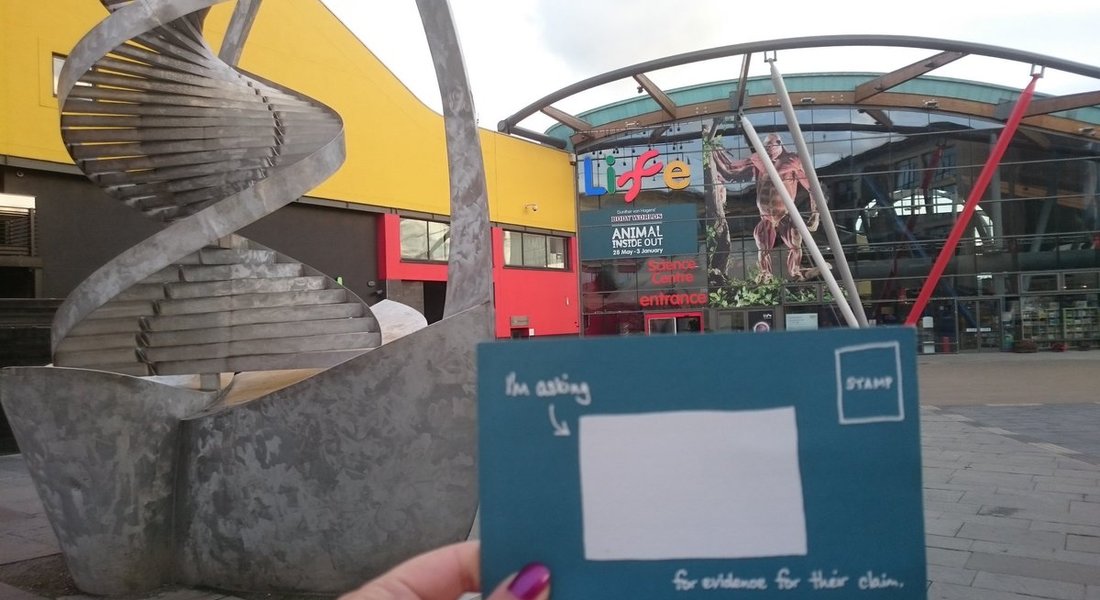
When I saw the Ask for Evidence ambassador advert calling for applications, my first thought was that it sounded like an amazing opportunity. I had already been following Sense about Science, and admittedly I have admired their work for years. What a fantastic way to gain new skills and meet new people! This was ultimately my approach to this. However, over the course of my journey, my approach towards the campaign changed rapidly and became something else entirely.
So, I applied for it and was rejected. But I stayed close to Sense about Science by joining the Voice of Young Science and continuing to follow them. I first became involved in the campaign when I asked the Conservative party for evidence on a claim they made (1000 jobs created every single day?) (It was much later on when I conducted my second Ask for Evidence on Regenerate toothpaste). I actually ended up becoming an Ask for Evidence ambassador because I was asked to step in on the few occasions when other ambassadors had pulled out. I gave two presentations at the Café Scientifique in Beverley, Hull and Headingley, Leeds in late April and early May respectively before I was eventually made ambassador. My focus at the time was simply to gain presentation skills.
When I was a biology undergraduate at Newcastle University (not too far from the amazing Centre for Life) I was once told after delivering a presentation that I appeared quite confident in giving the talk, and this ultimately boosted my confidence. I took that forward into my academic presentations, but as most academics know giving an academic talk is never quite the same as giving one to the public. To me, being an Ask for Evidence ambassador was the perfect opportunity.

In the beginning and after I gave these two initial talks, I began to undertake various activities to improve my presentation abilities. Over the course of the past three years, I took online courses (such as Future Learns’ Persuasive Communication), sought advice from people who had listened to my talks, and even read TED Talks by Chris Anderson. With each new activity and piece of advice, I adapted the talk to really maximise its reach. I was also given a bit more freedom to seek out opportunities independently to give talks, and with it I also began writing.
But things were already changing. The questions asked at the end of every talk were noticeably themed on the validity of evidence. For example, how can we trust evidence if the peer review process is broken? Or how can we tell if evidence is affected by bias? What about those who refuse evidence because of an emotional investment? Finally, what do we do/ who should we believe when there is conflicting evidence from two opposing sides? To me, this all forms part of a ‘Culture of Evidence’ where the nuances and complexities of these factors (and possibly more) means that there is no black and white answer. Instead it becomes a discipline in itself, which is why I wrote my blog piece on this (On the Culture of Evidence). Finding that my own thoughts are being echoed elsewhere (Scientific Evidence: what is it and how can we trust it?) further reinforces the need to get this message across. By including this concept in all my later talks (Sheffield Café Scientifique, Science Brainwaves at the University of Sheffield, and my radio appearance at Chapel FM, Leeds (Science Matters: How do we evaluate science and evidence), I could now get other people thinking about the same thing.
Overall, getting others to ask for evidence is a good thing because it puts pressure on organisations and people to be transparent. But I think we can go deeper still, not just to examine the evidence itself (something that this campaign has provided in the form of Understanding Evidence), but to get people exploring this culture of evidence for themselves. My approach towards this campaign has clearly changed quite dramatically. In the end, I like to believe that this message (combined with my improved presentation skills) had a powerful effect, and I was extremely happy to have done exactly this at the Centre for Life in Newcastle!
Danae Dodge has been an Ask for Evidence ambassador since 2016 and is now helping the new ambassadors.
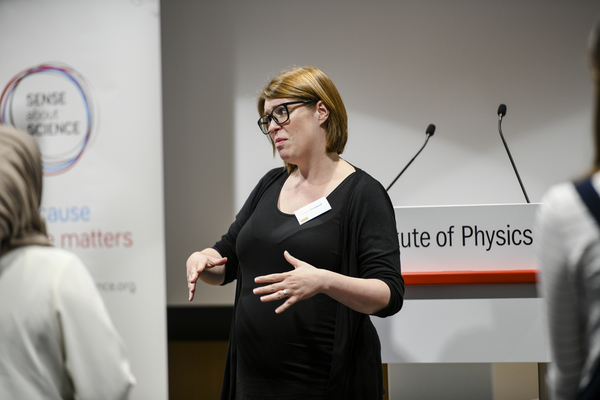
I became an Evidence Ambassador in May and have attended training on communications and public speaking. At the training I met the other ambassadors who are an interesting and diverse [...]
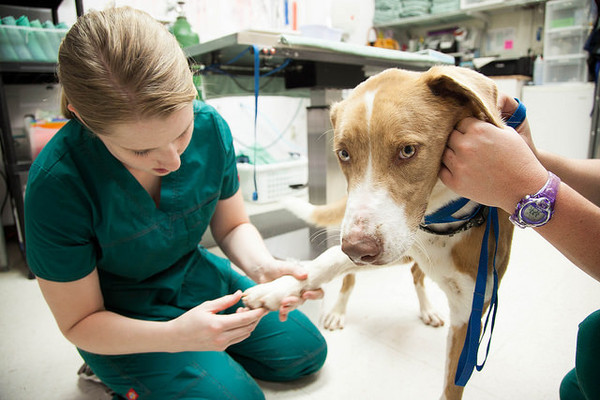
Last month I become an Ambassador for the Ask for Evidence campaign. I must have been mentioning the campaign around the office a fair bit as my colleagues suggested it would [...]
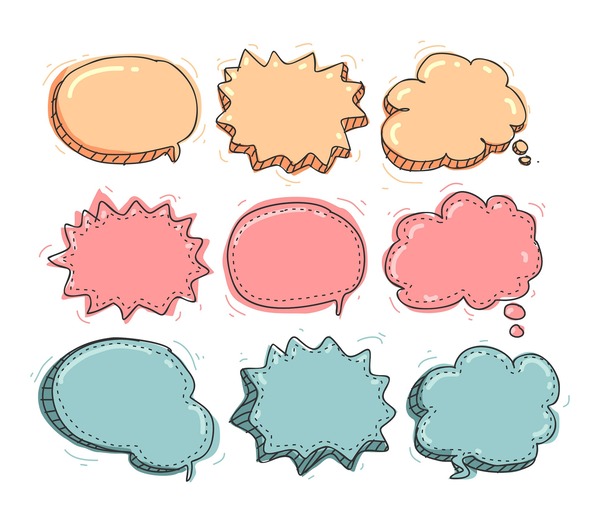
The power of empowering people to be critical We are surrounded by new, contradictory information, constantly. Politicians, healthcare professionals, and even celebrities give us advice on the best way to [...]
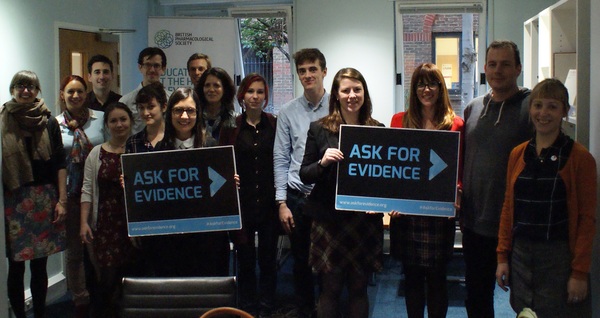
Ten passionate early career researchers have been selected from over 100 applicants as our 2016 Ask for Evidence ambassadors. They will represent the campaign at talks around the UK and [...]
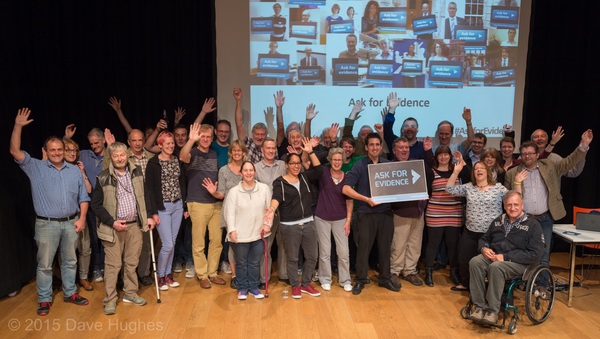
It’s been a little over a month since 10 fantastic early career researchers became our 2016 Ask for Evidence Ambassadors. They have been tasked with representing the campaign around the [...]
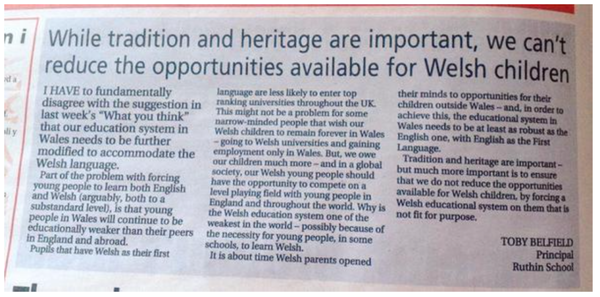
Hamish Chalmers questions claims that forcing children to read Welsh will harm their education. [...]